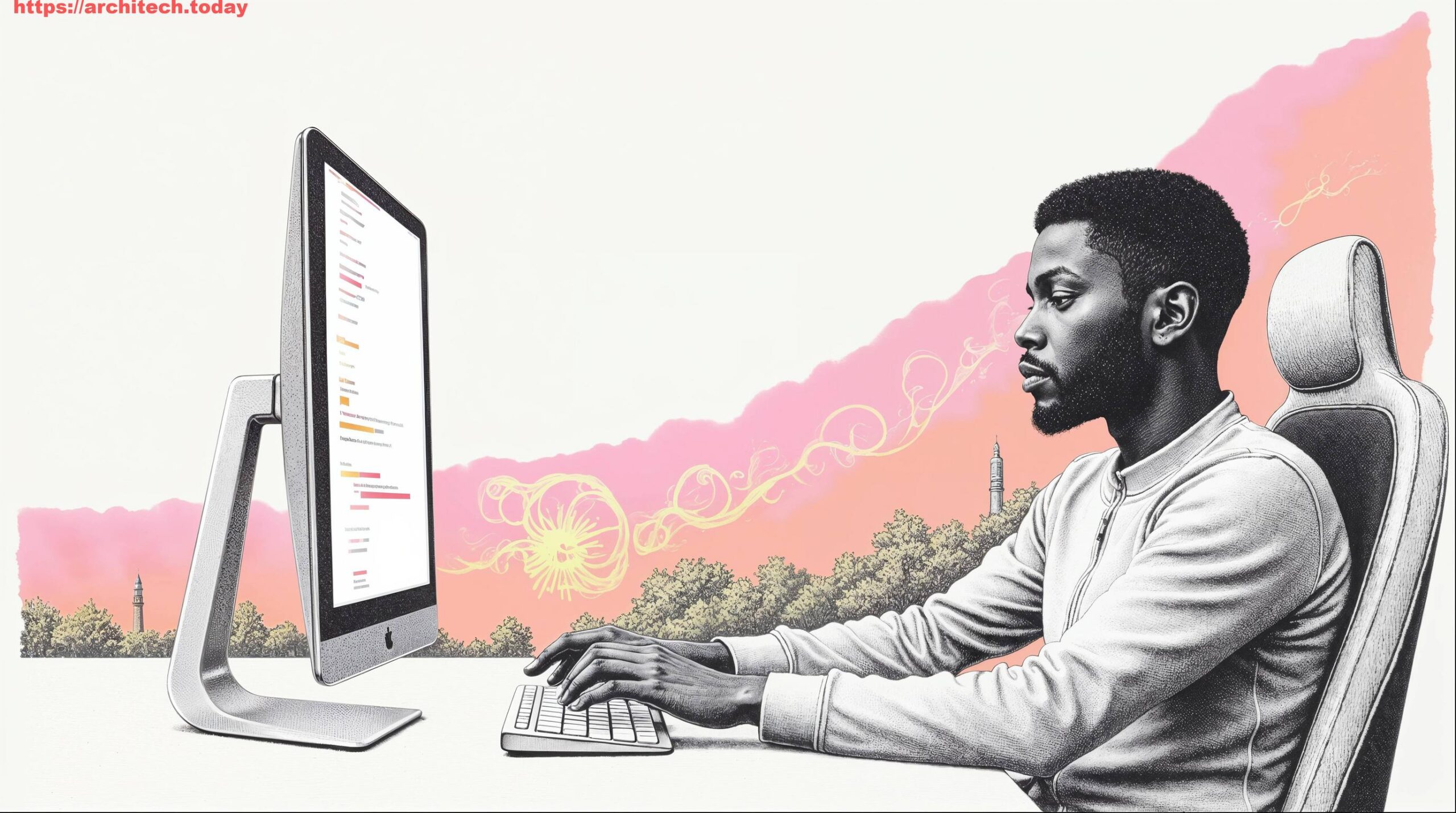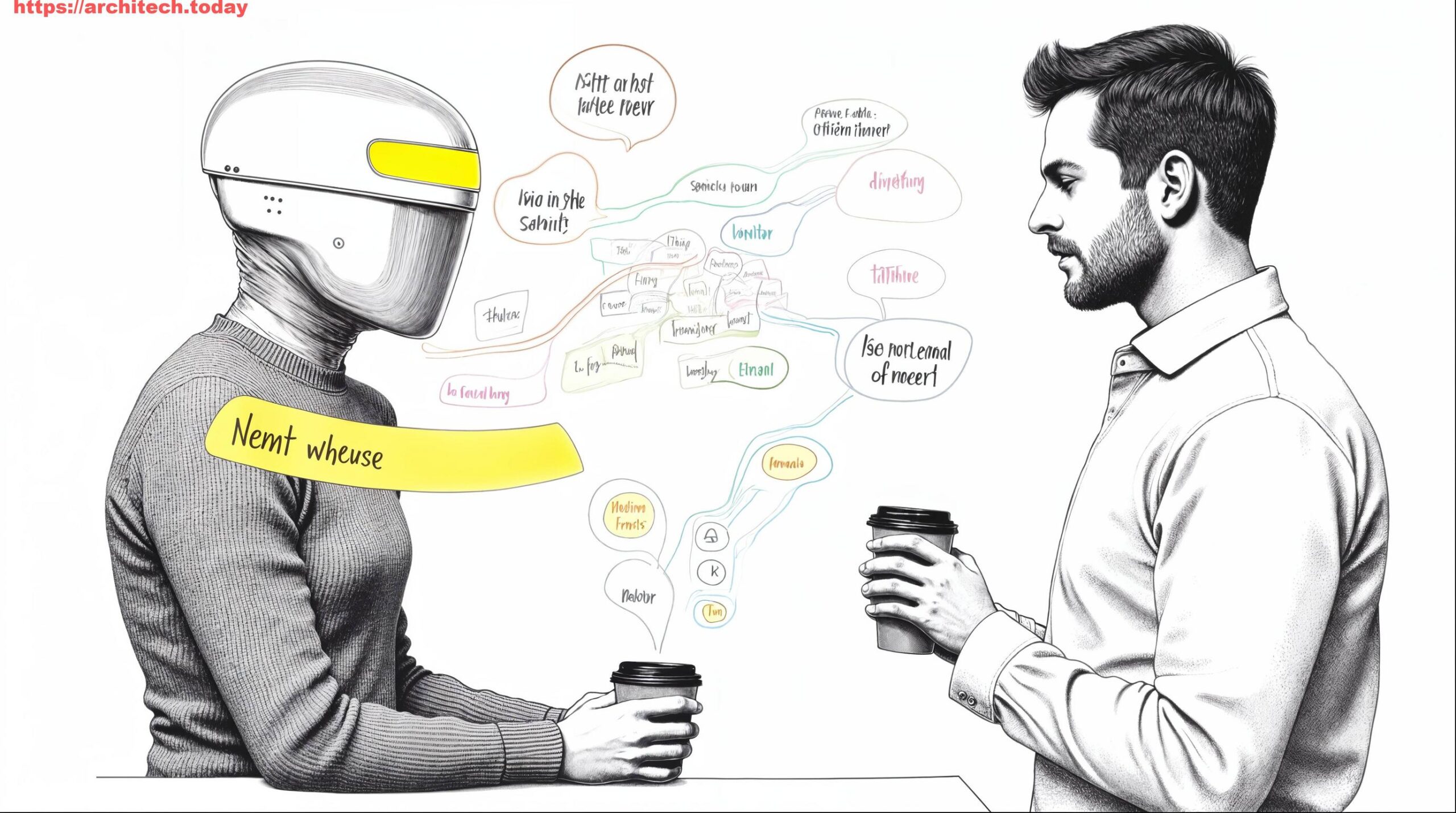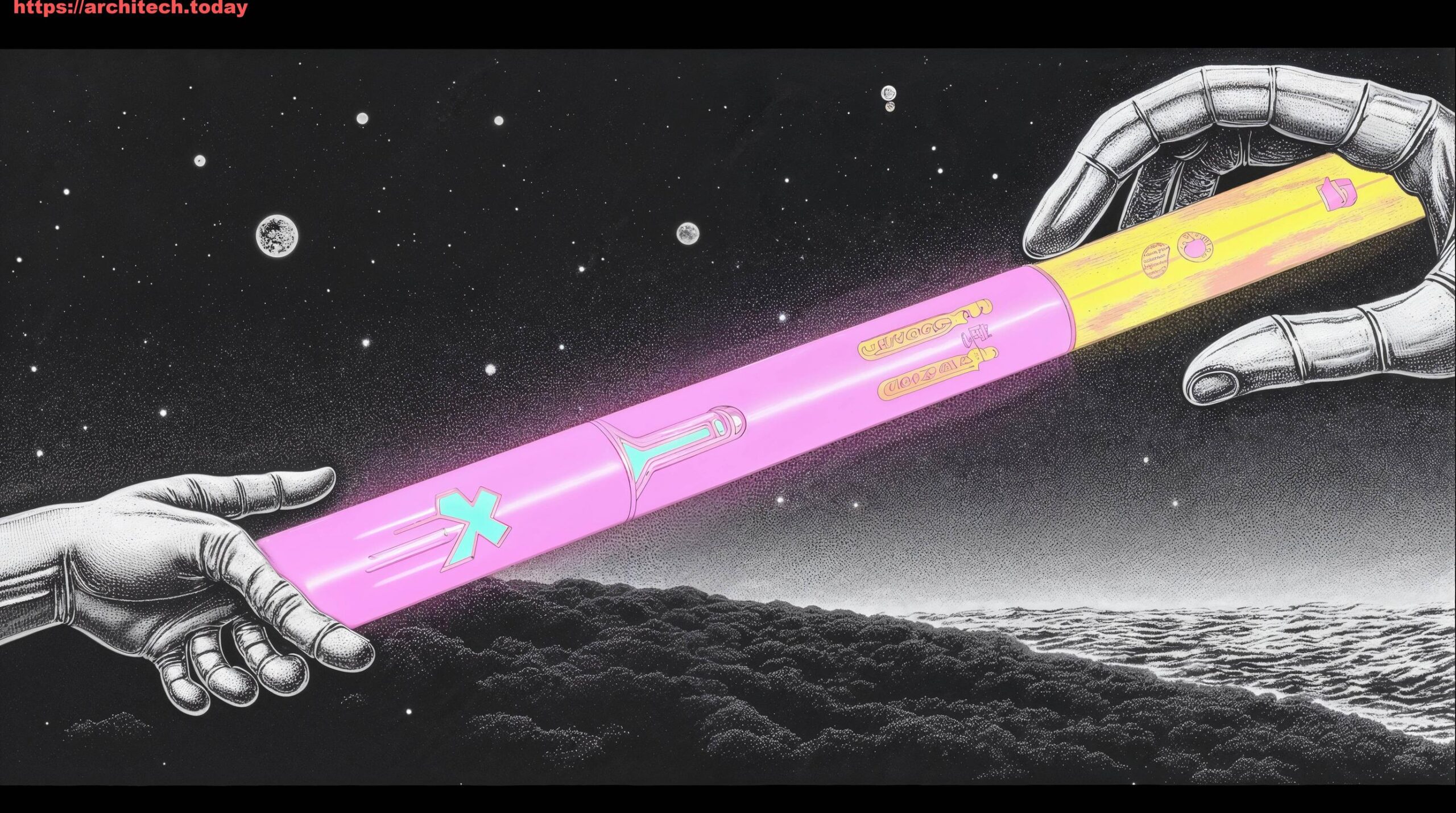Imagine it’s 2030. You pour your morning coffee, and your AI assistant has already analyzed yesterday’s project data, flagged potential bottlenecks, re-prioritized a few tasks based on new dependencies, and even drafted an initial response to a tricky stakeholder email. Your project manager, a human, is reviewing this, not painstakingly creating it. The lines between human intuition and artificial intelligence are blurring, sparking a profound question on the minds of project managers and business leaders alike: will AI take over project management, or simply redefine it?
This isn’t just a philosophical debate for a distant future; it’s a conversation impacting careers and strategies today. With AI’s increasing capabilities in scheduling, analytics, and even communication simulation, it’s easy to envision a world where AI-driven projects run with minimal human oversight. Yet, the nuanced human elements—leadership, empathy, creativity, and complex stakeholder management—seem stubbornly irreplaceable. This article isn’t about predicting a robot apocalypse in the PM office (Spoiler: The rise of our robot overlords as project managers has been greatly exaggerated). Instead, it’s an exploratory journey into how far AI might advance, what uniquely human strengths will remain critical, and how project managers can not just survive but thrive as strategic orchestrators in an increasingly intelligent ecosystem. Prepare to contemplate and prepare for this exciting, evolving future.
The AI-Powered PM Today: Automating the Mundane, Amplifying Efficiency
Today, AI is already an indispensable silent partner for many project managers, diligently automating the tasks that once consumed countless hours. Think of it as moving from a clunky dial-up modem in a 5G world to a lightning-fast fiber optic connection for your project data. The shift is not subtle; it’s transformative. Project managers are increasingly leveraging AI not to replace their roles, but to offload the grunt work, freeing up their valuable cognitive resources for higher-level strategic thinking.
Currently, AI excels in areas that involve data processing, pattern recognition, and predictive analytics. For instance, AI-driven scheduling tools can analyze historical project data, team member availability, and task dependencies to generate optimized timelines that human PMs would struggle to create manually in a reasonable timeframe. Resource allocation, a perennial headache for many project leads, is another prime candidate for AI intervention. Intelligent systems can dynamically allocate resources based on skill sets, workload, and project priorities, ensuring that critical path tasks are never starved of the talent they need. This proactive resource management helps prevent bottlenecks before they even emerge, offering a clarity and foresight previously unattainable.
Beyond logistics, AI is transforming risk identification and reporting. Traditional risk management often relies on subjective assessments and reactive measures. AI, however, can comb through vast datasets – from past project failures to external market indicators – to identify subtle risk patterns that might elude human perception. It can then assign probabilities and potential impacts, allowing project managers to prioritize mitigation strategies with unprecedented accuracy. Moreover, AI-powered reporting tools can instantly generate comprehensive status updates, performance dashboards, and compliance reports, tailoring the information to specific stakeholder needs without the manual aggregation and formatting that used to eat up significant time. A project manager using these tools isn’t just faster; they’re operating with a richer, more objective understanding of their project’s health, making decisions based on data-driven insights rather than gut feelings alone. This foundation in automation is merely the beginning of AI’s journey in project management.
Projecting Forward: AI’s Ascendance in Strategic Domains
If today’s AI is the efficient assistant, tomorrow’s AI promises to be a sophisticated co-pilot, venturing into domains once considered exclusively human. We’re not just talking about automating repetitive tasks anymore; we’re looking at AI taking on increasingly strategic and even “creative” roles within project management. Picture a project status meeting in 2030, where an AI-powered project bot actively participates, not just presenting data, but offering strategic recommendations based on its continuous analysis of market shifts, technological advancements, and internal team dynamics.
Consider the realm of autonomous agile sprints. Imagine an AI system, fed with project goals and product backlog items, independently managing an entire sprint. It could break down user stories into tasks, assign them to team members based on their historical performance and current availability, track progress in real-time, identify impediments, and even suggest re-prioritizations during the sprint. Such an AI wouldn’t just be a scheduler; it would be a dynamic orchestrator, adapting to changes faster than any human possibly could, optimizing sprint velocity, and aiming for continuous delivery. This level of autonomy would redefine the daily grind, allowing the human project manager to zoom out and focus on the overarching product vision and strategic alignment.
Advanced scenario planning and simulation are another frontier. AI can model countless “what-if” scenarios, simulating the impact of various decisions on project timelines, budgets, and outcomes with a speed and complexity impossible for human teams. For instance, an AI could simulate the ripple effects of a sudden budget cut, a key team member departure, or the introduction of a new regulatory compliance requirement, providing the human PM with an array of potential futures and optimal pathways. Furthermore, AI is making strides in communication simulation. While not replacing human interaction, AI can draft initial responses to complex stakeholder inquiries, summarize lengthy discussions, or even analyze communication patterns to predict potential areas of conflict. This doesn’t mean AI replaces the empathetic ear of a human leader, but it certainly streamlines the flow of information and prepares the PM for critical conversations, ensuring they walk into a room fully armed with context and potential solutions. However, this raises questions about over-reliance and the ethical implications of AI making decisions that directly impact human careers and project success without human oversight. The balance between AI’s analytical prowess and human ethical judgment becomes paramount.
The Irreplaceable Human: Where AI Hits its Limits
Despite AI’s undeniable progress, there remains a bedrock of human skills that technology, for all its sophistication, struggles to replicate. These are the qualities that define true leadership and effective project management in its most profound sense. While an AI can process data points, it cannot truly understand the unspoken anxieties of a team member or the political sensitivities of a key stakeholder. This is where the human element, far from becoming obsolete, becomes more valuable than ever.
At the forefront of these irreplaceable skills is leadership. Leadership isn’t just about giving directions; it’s about inspiring, motivating, and guiding a diverse group of individuals towards a shared vision. It involves navigating ambiguity, making tough calls with incomplete information, and fostering a culture of trust and collaboration. An AI can optimize task allocation, but it cannot inspire a demotivated team to push through a challenging phase. It cannot build the personal rapport that makes team members feel valued and understood. Empathy and emotional intelligence are inherently human. Understanding subtle non-verbal cues, recognizing underlying emotions, and responding with genuine compassion are critical for conflict resolution, team cohesion, and stakeholder engagement. Imagine an AI attempting to mediate a heated dispute between two strong personalities on a project team. While it might analyze the logical arguments, it would likely miss the emotional undercurrents that are often the true root of the conflict. It cannot offer the genuine support and understanding that a human leader provides.
Creativity and innovation are another domain where human ingenuity shines. While AI can generate novel combinations of existing ideas or optimize processes, it doesn’t possess the spark of original thought or the ability to envision truly disruptive solutions from first principles. When a project hits an unforeseen roadblock, it’s the human project manager and their team who can brainstorm truly out-of-the-box solutions, not just permutations of known variables. Similarly, complex negotiation and stakeholder management demand a nuanced understanding of human psychology, power dynamics, and relationship building. An AI can provide data points to support a negotiating position, but it cannot read the room, understand an individual’s motivations beyond their stated objectives, or build the trust necessary to forge long-term alliances. These are skills that rely on intuition, experience, and the capacity for truly human connection—attributes that remain firmly beyond the current grasp of artificial intelligence. In essence, while AI can manage the ‘what’ and the ‘how’ with incredible efficiency, the ‘why’ and the ‘who’ will always be the human project manager’s domain.
The Evolving PM Role: From Taskmaster to Strategic Orchestrator
Given the strengths of both AI and humans, the project manager’s role isn’t disappearing; it’s undergoing a profound transformation. The days of the PM as a glorified taskmaster, meticulously tracking every minutia and micromanaging timelines, are rapidly becoming a relic of the past. In the AI-augmented future, the project manager will ascend to a more strategic, visionary, and human-centric role—that of a “Strategic Orchestrator” or a “Chief Motivator.”
This shift entails a significant re-prioritization of responsibilities. Less time will be spent on administrative grunt work—scheduling, basic reporting, rudimentary risk identification, and resource allocation—as these will be largely handled by intelligent AI systems. Instead, the modern PM will focus intensely on higher-value activities. This includes honing the project’s strategic alignment with organizational goals, ensuring that every deliverable contributes meaningfully to the broader business objectives. They will become the primary bridge between disparate departments, fostering collaboration and breaking down silos, a task that requires deep human understanding and persuasive communication.
A crucial aspect of this evolved role will be visionary leadership. With AI handling the tactical details, PMs will be freed to think expansively about future project iterations, emerging technologies, and innovative solutions that can propel their projects (and organizations) forward. They will be the architects of innovation, inspiring their teams to explore new possibilities and challenge the status quo. Furthermore, the PM will become an expert in human-AI collaboration, understanding how to effectively integrate and leverage AI tools, interpret their outputs, and troubleshoot when necessary. They will train teams on how to interact with these intelligent systems, ensuring a symbiotic relationship where human creativity and AI efficiency converge for optimal outcomes.
Moreover, the project manager will double down on their role as a coach, mentor, and facilitator. In a world where AI optimizes processes, human potential becomes the ultimate competitive advantage. PMs will invest more time in developing their team members’ skills, fostering psychological safety, and ensuring their well-being. They will act as advocates, removing roadblocks, and empowering their teams to achieve peak performance. As the Project Management Institute (PMI) often highlights in its future outlooks, the emphasis is shifting from process adherence to value creation, and from controlling tasks to empowering people. The future PM isn’t just managing projects; they are curating environments where both human and artificial intelligence can flourish, delivering unparalleled value to the organization.
Future-Proofing Your PM Career: Embrace and Adapt
The writing is on the wall: the project management landscape is evolving, and clinging to outdated practices would be like trying to navigate the information superhighway with a rotary phone. For project managers and business leaders, the message is clear: the path to future-proofing your career lies not in resisting AI, but in strategically embracing it and amplifying your uniquely human strengths. This isn’t about becoming an AI programmer, but about becoming an AI-literate leader who understands how to harness these powerful tools.
Firstly, prioritize AI literacy and strategic tool integration. Understand the capabilities and limitations of various AI tools relevant to project management. This means actively experimenting with AI-powered scheduling, risk analysis, and communication platforms. Don’t just delegate tasks to AI; learn to interpret its insights, challenge its assumptions, and integrate its outputs seamlessly into your decision-making process. The goal is to become adept at human-AI partnership, treating AI as an extension of your analytical and administrative capabilities. According to a hypothetical 2025 Gartner report on future workforces, “Project managers who effectively leverage AI for administrative tasks report spending 40% more time on strategic planning and leadership, directly correlating to a 15-20% increase in project success rates.” This isn’t just about efficiency; it’s about elevated impact.
Secondly, double down on your uniquely human skills. As AI takes over the quantifiable and repeatable, the qualitative and nuanced aspects of leadership become paramount. Invest heavily in honing your emotional intelligence, communication skills (both verbal and non-verbal), negotiation prowess, and conflict resolution abilities. These are the skills that build trust, inspire teams, and manage complex stakeholder expectations—areas where AI currently offers assistance but cannot replace genuine human connection. Cultivate creativity and strategic thinking; challenge yourself to look beyond the immediate project and envision its broader impact and future potential. Be the visionary who frames the problem, not just the one who solves it. Your ability to connect, empathize, and inspire will be your most valuable assets.
Finally, embrace a mindset of continuous learning and adaptability. The pace of technological change is only accelerating. The most successful project managers of the future will be those who view their role as a continuous journey of skill development, constantly seeking new knowledge and adapting their approaches. Attend workshops on AI ethics in project management, explore new methodologies that integrate AI, and actively participate in thought leadership discussions about the future of work. By proactively engaging with these changes, you won’t just react to the future; you’ll help shape it. Don’t be a spectator; be an active participant in defining the next era of project leadership.
Conclusion: The Future is Collaborative, Not Replaced
The journey into the future of project management reveals a landscape not of human obsolescence, but of profound evolution. The question “Will AI take over project management?” finds its answer not in a stark ‘yes’ or ‘no’, but in a resounding ‘it depends on us.’ While AI continues its remarkable ascent, automating vast swathes of administrative and analytical tasks with unparalleled efficiency, it simultaneously elevates the critical importance of human capabilities. Leadership, empathy, creativity, and the nuanced art of stakeholder management are not just surviving; they are becoming the distinguishing hallmarks of invaluable project professionals.
The project manager of tomorrow will not be a robot or a drone, but a sophisticated orchestrator, a strategic visionary, and a chief motivator who masterfully wields AI as an extension of their intellect and reach. This future demands a proactive approach: embracing AI literacy, diligently refining emotional intelligence, and consistently focusing on strategic value creation. The human touch, far from being sidelined, will be what truly differentiates success in an increasingly automated world. So, are you ready to not just navigate, but lead, the collaborative future of project management? The stage is set for an exciting new era, and your role in it is more crucial than ever.








No comment yet, add your voice below!